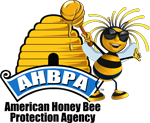By Susan Bartlett
Austinites have come to love their bats.
The Congress Avenue Bridge is home to over 1 million Mexican free-tailed bats. Despite initial fear and ignorance of these now Austin icons, these bats have become an eco-tourism attraction and destination. Despite squeamish reactions, bats are good for the environment; they eat up to 20,000 lbs of pesky agricultural and disease-laden insects each summer evening. Bat Conservation International (BCI) protects and promotes this bat colony.
But now there’s an important and essential insect moving in to make a buzz in Austin these days. High atop the W Hotel, on the 38th floor rooftop, is a new apiary residence for approximately 1 million honey bees. Honeybees, like bats, are good for the environment and are also an endangered species. Central Texas Bee Rescue (CTBR) is aiming to change all that. Honeybees pollinate 80% of our flowering crops, which constitute one-third of everything we eat. CTBR is dedicated to saving and protecting the future of our nation’s bee population by providing an alternatives to extermination.
One alternative was to set up an apiary of 10 hives amongst a mini garden of blooming herbs, trees and vegetables. These pampered bees and hives will be rotated out, and the honey harvested will be used in specialty foods and drinks in The W Hotel’s restaurant, TRACE. Proceeds from honey sales go towards relocating and rehabilitating more local bees.
Oh, and don’t bee alarmed – the bats and bees perform the delicate dance of night and day; bats are nocturnal and are out feeding while the bees are snug in their hives.
Honey bees, like bats, not only make our world a better place to live, they allow us TO live and make our lives better every day! So get hip and honor the honeybee, beecuz what’s old, is new again!
So while you’re paddling down Lady Bird Lake with your honey to see the bats under the Congress Avenue Bridge on a summer evening, keep the bees top of mind and buzz on by The W Hotel afterwards for a Green Bee (citron vodka, cucumber, basil, honey, and lemon juice) and a feral honey-glazed dinner





5 Comments
This is a wonderful notion! What the wonderful community of Austin, Texas has done for the bats, can now be translated for the bees! Thanks for this delightful insight and comparison!
Was in front of the W the other day and all the flowers were covered in bees..
HelloI am interested in jioning your group andgetting involved in beekeeping.When are your meetings?Is David Pritchett a member of your group? He currently has hives on our property! But I’d like to have some of my own as well.Please contact me with contact info (phone etc)as to when meetings are held, etc.Thanks!Mary Anne
Veery good website you have here but I was curious if you knew of any discussion boards that cover the same topics discussed
here? I’d really llike to be a part of group where I can get comments from other knowledgeable individuals that share thee same interest.
If you have any recommendations, please let me know.
Thanks!
Winifred, I have found the Barefoot Beekeepers discussion boards and podcasts to be very well done and full of excellent information that AHBPA fully approves. The site is here: http://www.biobees.com/
Comments are closed.